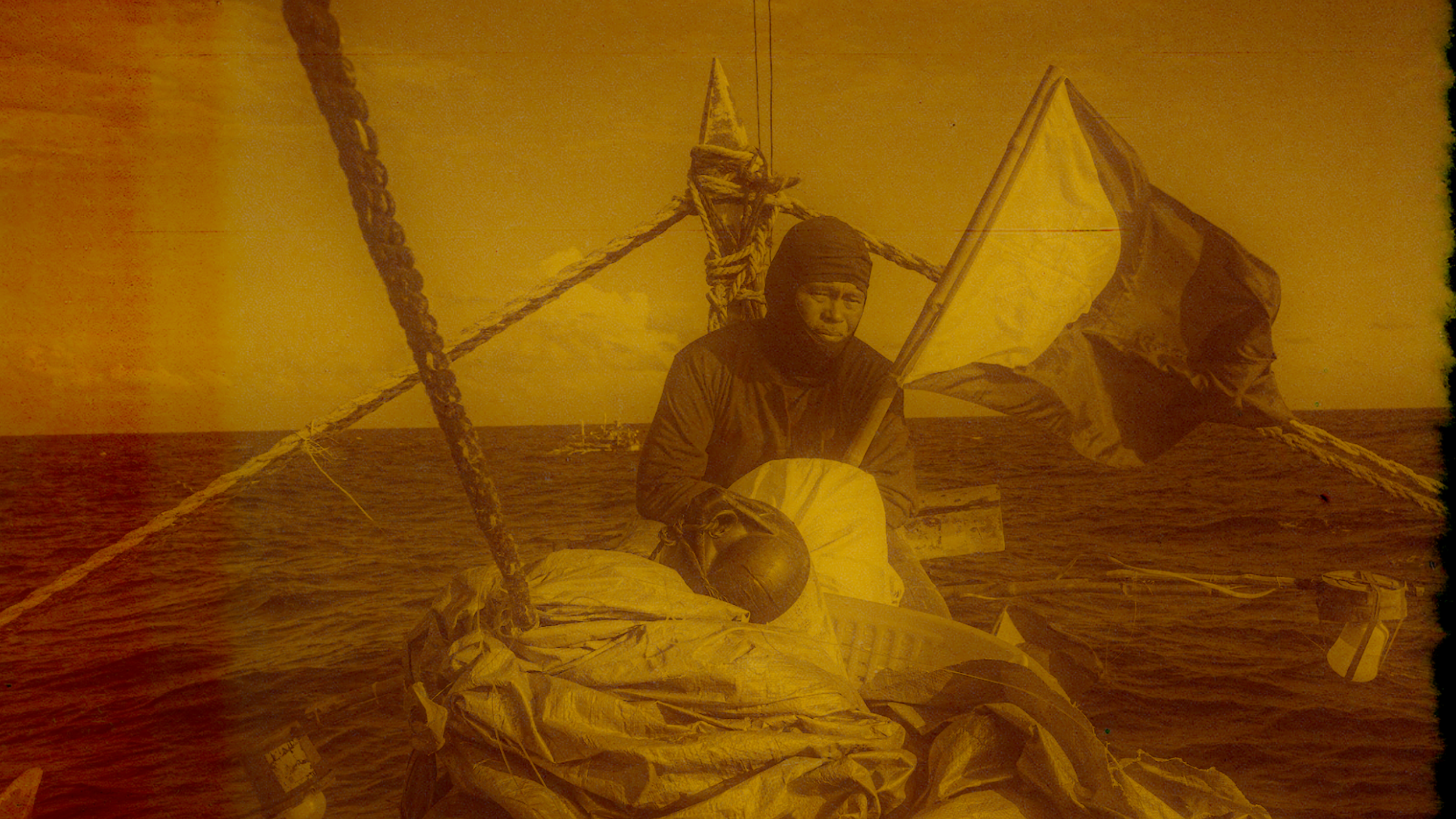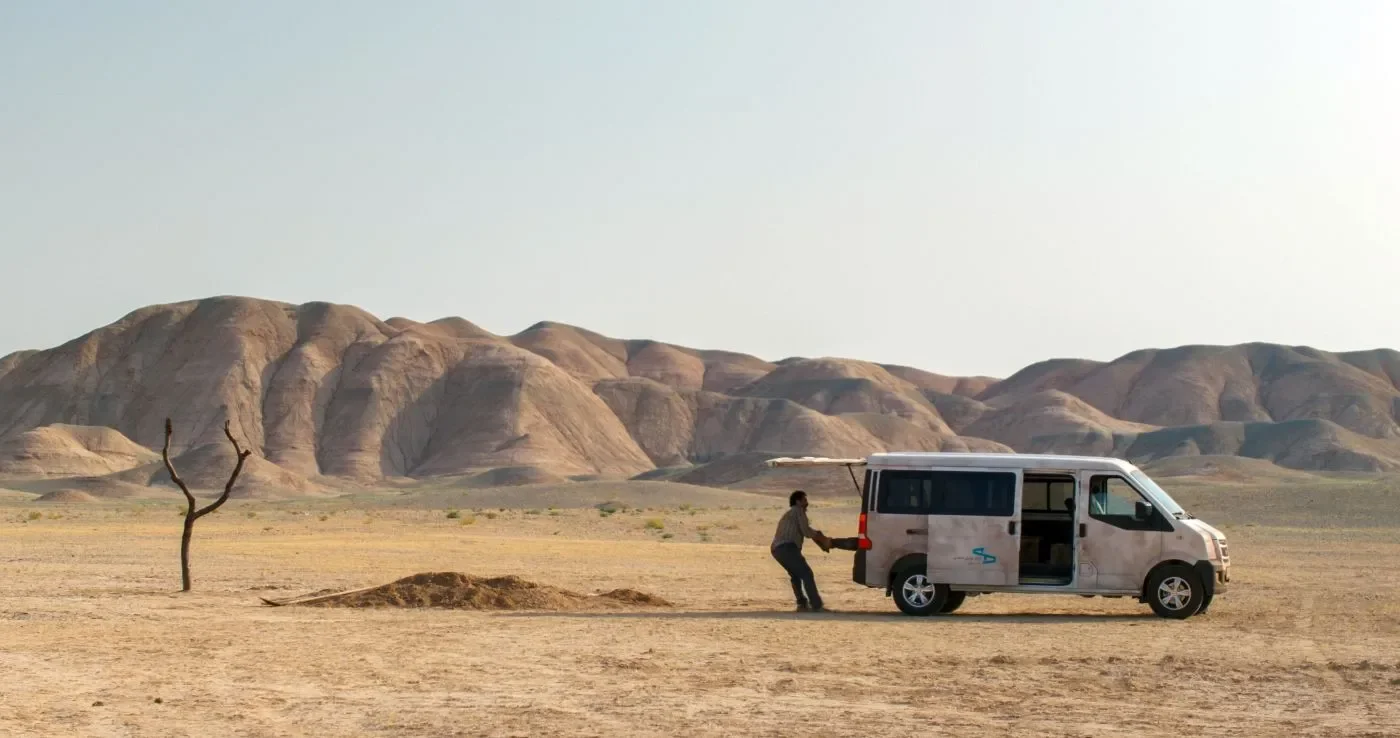‘Lisyun qng Geografia' REVIEW: To be spoken of again
‘Lisyun qng Geografia' REVIEW: To be spoken of again
Tib (Ross Pesigan) meets Tric (Earl Policarpio) again after many years have passed | Still taken from IMDb
Yearning is always within reach: felt, insistent, even fluent. Yet what it seeks remains coldly distant. Tib (Ross Pesigan) and Tric (Earl Policarpio), two high school best friends preparing for college, are caught in that helpless feeling — made more unbearable in a place that doesn’t always make room for emotions that don’t follow its rules. In the tension between closeness and difference, director and writer Petersen Vargas finds personal closure through these two characters, making a film that is technically assured, eye-opening and heartfelt, even in its brevity.
Recognized with the “Best Direction in Short Film” award at the 11th Cinemalaya Independent Film Festival, Vargas’ Lisyun qng Geografia presents itself as both focused and unsparing, capturing the shapeless pain of queer confusion in the volatile stretches of youth with necessary clarity and care. Lauded then and even now for the heart-wounding impression it leaves, the film continues to spark conversation and cut through the Filipino cultural lexicon in social media. In one of those rare cases, critical reception feels like an afterthought, secondary to the sincerity that gives the short its enduring resonance.
Tib takes a photo of Tric on their favorite road to stroll along | Still taken from IMDb
From its very first shots, Lisyun qng Geografia breathes life into its intimate vision through a story steeped in bittersweet silence, a motif naturally embodied by the film to its full extent. Rather than representing their emotions, it observes them quietly. The characters feel like they have a history to tell, not just a message to deliver. It's a choice made evident when we meet Tric in an understated, well-crafted scene as he uncovers a map that’s been begging to be dusted off while preparing to leave Pampanga. He is then forced to confront a past he has long tried to forget, molded by someone he knew with haunting familiarity: Tib.
Memories don’t always serve us as well as they should and for Tric, a high school bond seems to weigh on him not because of the time that has passed, but because of what it meant to let it grow into years without proper reflection and closure. And so he tries to sift through the mementos he shared with Tric glued on the map and attempts to trace it in his hometown hoping that the long-known streets might finally rest their noise.
Vargas’ written premise is simple at its core, but the way he harnesses it through skillful presentation coupled with the excellent performances from the main actors elevates it beyond mere melodrama. It becomes a personal ode to past conflicts — tender and beautifully directed.
This is clear in the way he composes his shots and how each frame complements the emotion the scene tries to evoke. In one moment, shadows from a tree bleed across a concrete wall as the two main characters banter; in the next, soft greenery surrounds them as they walk home. The dominant space in every scene radiates a quiet melancholy, distant yet warm. These images are striking: even in their subdued nature, they ask to be seen and felt as a whole and rightfully so.
Tib and Tric share a pair of earphones while listening to music | Still taken from IMDb
It’s also a film that demands to be heard. The sound design is crisp, it never fails to sharpen the emotive focus on each character. And then there’s the iconic Ourselves the Elves soundtrack, titled Geography Lessons, a direct English translation of the film's title, which gives each arc an affective contour. The songs don’t just fill gaps; they shape it, carrying the story through shifts in tone. The lyrics cut deep, often with persistent blows. Few bands align so powerfully with a film that is permeated with longing.
The narrative structure of Lisyun qng Geografia also deserves credit, as it smoothly pivots between past and present, with the former distinguished by a pale blue color palette. The cuts are thoughtfully placed, adding depth to the story beats and serving as a parallel anchor to the tone of each moving scene. It delivers a payoff at the end that lands as a brutal gut-punch that's more than welcome to stay.
Petersen Vargas’ short never preaches about its subject matter. Instead, it empathetically presents real experiences in an unfiltered, honest form. The anxieties tied to queer identity are messy, vulnerable, and disquieting not by nature but by condition. In Lisyun qng Geografia, these feelings are given the chance to be confronted, embraced, and ultimately freed. Some may dismiss the plot as simple, but small moments — like an empty soft drink bottle repurposed as a firework stand, or slow walks down rural roads punctuated by playful chatter — quietly refute that notion, making the film feel more like lived truths finally released.
Tib and Tric often trade glances with thin-skinned kindness, yet always retreat from the kind of honesty that might fail them under the mounting pressures bearing down on their bond. In Lisyun qng Geografia, they come to represent more than a story of transition and redemption, they become the very outline of emotions we all struggle to face, not through an identity we must categorize or define, but through the willful grasp of courage that needs to be spoken of again and again.




















